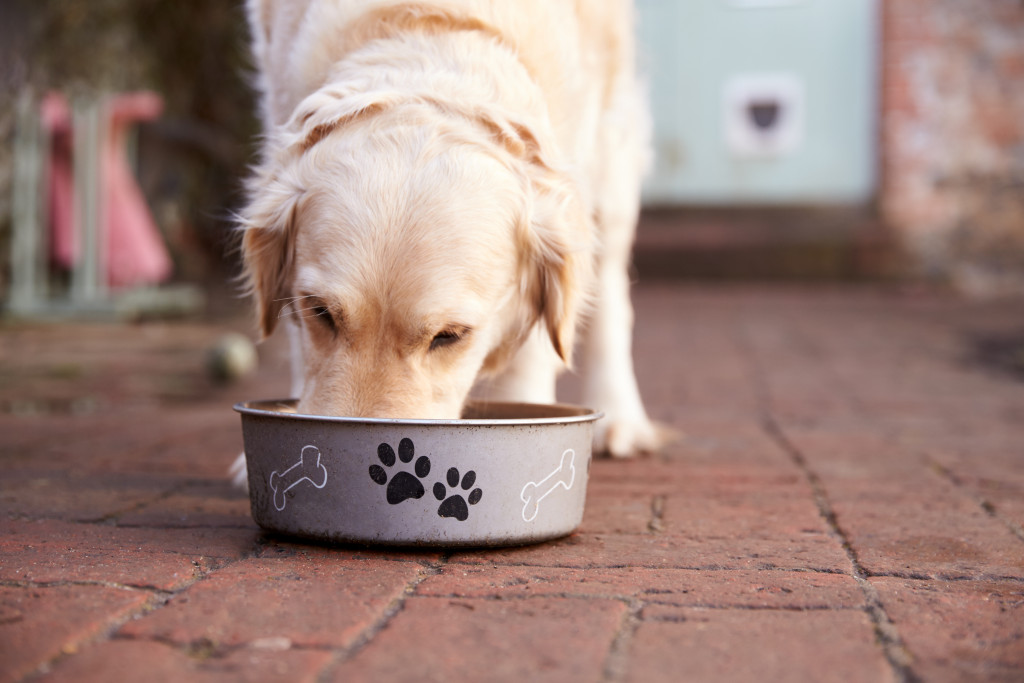Just as humans need a balanced diet with all the necessary nutrients and components, dogs also need specific elements in their diet to ensure their health and wellness for years to come. When a dog is in its developing years, it’s even more vital for them to consume the proper meals with the correct nutrients, as it protects their eyesight, movement, the quality of their coat, and more.
The Value of Protein for Dogs
It seems obvious that dogs need protein to stay healthy, just like humans do—but why is protein so critical for a dog’s health? While dogs are consummate omnivores just like humans, they lean more heavily on protein than other nutrients to survive and remain healthy.
Protein contains numerous amino acids, and it’s these ten essential amino acids that dogs need for cell repair and tissue growth. It helps them maintain their protective coats, keeps them energetic, and sustains their immune system. It also supports the cartilage in dogs’ bodies, which keeps their tendons and ligaments strong. This is critical for breeds of dogs that are susceptible to bone and joint damage.
Proteins in Dog Food
Are there ideal sources of protein? While there is no one-size-fits-all on protein sources, especially when you consider different dog breeds and their needs, pet owners have many avenues to provide their dogs with the protein they need.
-
Meat
As always, meat is a popular choice for a dog’s meal as a source of protein. Real meat is one of the primary sources of protein for any dog, and they can consume it in many forms. The most accessible protein meats for dogs are beef and lamb, found in numerous commercial pet foods but can also get added as real components to a dog’s diet. That’s even better for them.
Of course, some dogs suffer from intolerance to these common forms of meat. Some dogs like in Singapore have issues digesting these usual meats, getting upset stomachs, skin issues, or even full anal glands. Because of this intolerance, owners might want to look at alternative raw dog food forms. Some pet owners have considered meats such as venison, elk, or kangaroo.
-
Eggs

Cooked eggs are one of the best sources of protein for dogs. Experts believe that not only are eggs of different varieties safe for dogs, but they’re also high in protein, riboflavin, folate, vitamins, and fatty acids that keep dogs healthy.
These are just some reasons that eggs are found in many recipes for commercial and homemade dog food. Some experts may even suggest that it’s a better source of protein than meats. Just remember that it doesn’t have to be given to them daily, and dogs can enjoy them as a topper to their meals.
-
Fish
Fish are another excellent protein source for dogs. Though you might associate fish with cats through popular media, fish is also very good for dogs. But fish offers more than just protein; it’s also rich in calcium, omega-3 fatty acids, iron, zinc, and iodine. These are all good things that even humans benefit from.
Another good thing about fish is that it is high-protein but low-fat, so when added to a dog’s meal, it makes an excellent protein booster without the risk of being too calorie-rich for your dog.
-
Poultry
Many dogs love poultry meats, which is its category apart from the other meats indicated in the previous section. Poultry protein sources include duck, chicken, and turkey. Similar to fish, this type of meat has a lower fat content without compromising the protein.
Poultry also offers unsaturated lipids, which improve a dog’s cholesterol levels. They also have iron and thiamine, which aid the circulatory and nervous systems of dogs.
Protein by the Pound
How much protein should your dog have? Again, this will vary depending on the dog’s size, breed, and veterinary advice of your dog’s doctor. But on average, an adult dog would need roughly one gram of protein per pound of weight.
Some pet owners may grow concerned: is there such a thing as too much protein? Excess protein gets processed by your dog’s kidneys. It won’t necessarily be harmful to your dogs, but as with everything, a balance of the different nutrients is essential.
Furthermore, the needs of an adult dog differ from that of a puppy. Puppies are still growing, which means that they need more protein. Puppies require an average of 28% of the protein in their diet. However, some breeds may have issues with a high protein diet, so make sure to consult with your veterinarian, so you’re always sure that your puppy is getting the proper nourishment.
Protein is an excellent component in facilitating a dog’s health as they grow. Don’t withhold it from them—it helps them stay healthy, happy, and energetic through their life with you.

